 Bangladesh : Safety by City
Bangladesh : Safety by City
Bangladesh isn’t on most travelers’ radar—and honestly, that’s what makes it interesting.
But interesting doesn’t trump inherent risk.
Wedged between India and Myanmar and edging the Bay of Bengal, this densely packed country of 170 million people sees just over 655,000 international visitors a year.
It’s not built for mass tourism, but it’s bursting with intensity, resilience, and contrast.
Formerly East Pakistan, Bangladesh gained independence in 1971 after a brutal war that still shapes its identity.
The country has since struggled with political instability, poverty, and climate vulnerability.
At the same time, it’s also made strides in development and education, punching well above its weight in global manufacturing and culture.
Naturally, Bangladesh is home to the Sundarbans, the world’s largest mangrove forest and the last refuge of the Bengal tiger.
It also claims the world’s longest natural beach (Cox’s Bazar) and an intricate network of rivers and wetlands.
Bangladesh is home to more than 700 rivers, weaving through every corner of the country and earning it the nickname “Land of Rivers.”
A landscape so water-rich, it feels like the land is barely keeping afloat.
Culturally, it’s a hub of Islamic, Hindu, and Bengali traditions, full of rickshaw art, tea gardens, poetry, and music.
That said, it’s a challenging place to travel—pollution, traffic, and infrastructure issues are very real.
But for those who go, the reward is authenticity, deep history, and a perspective most tourist hubs can’t offer.
Warnings & Dangers in Bangladesh

OVERALL RISK: MEDIUM
Bangladesh isn’t an active conflict zone, but risks are layered—civil unrest, poor infrastructure, and targeted violence during political protests can escalate quickly. While many areas are relatively calm, things shift fast. It's a medium risk in the safest places and a high risk in others. If you're not used to chaotic environments or limited emergency response, this isn’t a low-stress destination.

TRANSPORT & TAXIS RISK: MEDIUM
Traffic in Bangladesh is notoriously hectic, giving this a medium risk. Buses, rickshaws, and cars all fight for space, and road conditions range from poor to dangerous. Taxis are unmetered and often unregulated. If you use rideshare apps, verify the driver and vehicle. Avoid traveling after dark, especially between cities.

PICKPOCKETS RISK: MEDIUM
Petty theft happens mostly in crowded places like markets, bus terminals, and festivals. Pickpockets target obvious tourists, so don’t flash your phone or wallet. Use a crossbody bag, and keep valuables zipped and close. Most thefts are nonviolent, but still frustrating, and even basic precautions aren't always enough. It's a medium risk.

NATURAL DISASTERS RISK: HIGH
This is a high-risk year-round. Cyclones, flooding, and earthquakes are serious concerns. Bangladesh’s geography makes it especially vulnerable to climate-related disasters. Infrastructure can’t always handle it, and emergency response is limited.

MUGGING RISK: MEDIUM
This is another medium risk, especially when visiting the larger cities. While it's not necessarily a tourist risk, it's more about criminals looking for a crime of opportunity. They aren't afraid to get violent here, either.

TERRORISM RISK: MEDIUM
While not frequent, terrorist attacks have occurred at hotels, restaurants, and during public events. Security has increased, but soft targets remain vulnerable. The threat is unpredictable, and foreign travelers have been targeted in the past. Avoid large gatherings and keep tabs on your embassy's alerts.

SCAMS RISK: MEDIUM
Common scams include overcharging for transport, fake tour guides, and shady money exchanges. Be cautious if someone insists on helping you with bags, bookings, or SIM cards. The tourism industry isn't heavily regulated, meaning you're taking risks when booking excursions.

WOMEN TRAVELERS RISK: MEDIUM
Women may face unwanted attention, stares, and occasional harassment, especially when traveling solo. Dress conservatively, stay in public areas, and avoid walking alone at night. Putting violence concerns aside, cultural dynamics can make interactions uncomfortable. Traveling with a guide or companion can help reduce most issues.

TAP WATER RISK: HIGH
Don’t drink the tap water—ever. It’s often contaminated with bacteria, parasites, or heavy metals. Use sealed bottled water for everything, even brushing your teeth. Be cautious with ice and uncooked food. GI illness is a common issue for travelers, and avoiding unsafe water is step one.
Safest Places to Visit in Bangladesh
The Bangladesh Tourism Board runs the website beautifulbangladesh.gov.bd.
From travel essentials to an interactive map to regional highlights, you can find it all there.
The country is home to Sundarbans National Park, the world’s largest mangrove forest and a UNESCO World Heritage Site.
It’s one of the last places on Earth where Bengal tigers still roam in the wild.
The maze of tidal rivers and wildlife makes it a standout destination for ecotourism globally.
Cox’s Bazar boasts the longest uninterrupted natural sea beach in the world—over 70 miles of coastline.
It’s a popular spot for domestic tourists and has the potential for international appeal, though the infrastructure is still catching up.
In the north, Paharpur’s Somapura Mahavihara is one of the most important Buddhist archaeological sites in South Asia, also UNESCO-listed.
Think Angkor Wat, but with fewer crowds and more mystery.
Dhaka, chaotic as it is, has historical landmarks worth seeing, like Lalbagh Fort and the Ahsan Manzil (Pink Palace), and the Rickshaw Art scene here is uniquely vibrant.
If you’re up for venturing into rural areas, Srimangal is the heart of Bangladesh’s tea country and offers some quiet relief, plus excellent birdwatching and hiking.
Places to Avoid in Bangladesh
If you’re thinking of exploring beyond the major cities, there are a few places in Bangladesh you should absolutely skip.
The U.S., Canada, and others have issued Do Not Travel warnings for the Chittagong Hill Tracts—specifically Bandarban, Rangamati, and Khagrachari.
These areas deal with ongoing violence, armed groups, and kidnappings.
The government warnings also include noting the widespread violence across the country as of summer 2024.
Even experienced travelers shouldn’t mess around here—local support is minimal, and if something goes wrong, you’re on your own.
Safety Tips for Traveling to Bangladesh
- Police in Bangladesh are overstretched and response times can be slow, especially outside major cities. Dial 999 for emergencies, but don’t expect Western-style service. Corruption and language barriers may complicate things, so stay calm, be polite, and have someone local help if possible. Prevention is still your best defense here.
- Bangladesh is prone to floods, cyclones, and earthquakes. The government uses the Shetu app and local radio for alerts, but expats and travelers should follow their embassy on X (Twitter) and monitor weather sites like AccuWeather or ReliefWeb. Always know your evacuation route, especially if you’re in coastal or low-lying areas.
- Driving in Bangladesh is not for visitors hoping to ease into local life. The roads are dense, noisy, and full of surprises—think rickshaws, overloaded buses, and zero lane discipline. You’ll need an International Driving Permit, but that doesn’t mean you should use it. Hiring a trusted local driver is a smarter move, and even then, skip driving at night.
- There are no mandatory vaccines for entry, but travelers should absolutely be up-to-date on hepatitis A and B, typhoid, tetanus, and rabies. Japanese encephalitis and cholera are also worth discussing with your travel clinic. Mosquito-borne illnesses are a problem, so bring repellent and long sleeves, especially in rural areas.
- Phones work fine, but get a local SIM card for reliable service—Grameenphone and Robi are the major players. You’ll need your passport to buy one, and sometimes a photo. Wi-Fi is hit or miss, and power outages are common, so it’s a good idea to carry a power bank and download offline maps ahead of time.
- If you’re a dual citizen, Bangladeshi-born, or have a “No Visa Required” seal, the government considers you a resident and requires you to register your biodata with local authorities. That includes renters. It’s not optional, and skipping it can lead to trouble, especially if your ID or visa status gets checked.
- Building fires are common—and deadly. Many high-rises, malls, and apartment buildings lack fire exits, alarms, or even extinguishers. If you’re staying in a hotel or Airbnb, look around: find your exits, check for alarms, and have a basic escape plan. Don’t assume anyone else has thought this through.
- English is spoken in tourism and business circles, but don’t count on it everywhere. Outside major cities, it’s limited. Download Bangla on Google Translate and learn a few basics like “help,” “doctor,” and “no.” Written English on signs is common, but spoken comprehension can vary wildly.
- Bangladesh—especially Dhaka—frequently ranks among the world’s most polluted cities. Check IQAir or the AirVisual app daily. If the AQI is above 150, wear an N95 mask outdoors and avoid strenuous activity. Poor air quality can worsen respiratory issues fast, even if you’re healthy. Sensitive travelers should pack inhalers or filters.
- Trains in Bangladesh aren’t just outdated—they’re targeted during protests. Sabotage, like explosives or pulled track ties, happens during political unrest, and delays are common even on a good day. Foreigners stand out and may attract unwanted attention at stations. If you must ride, go in first class and avoid night routes.
So... How Safe Is Bangladesh Really?
The short answer: it depends on where you’re going, how prepared you are, and your risk tolerance.
As of now, the U.S. has it at Level 3: Reconsider travel.
That’s not a soft warning.
It’s what they use when things like civil unrest, terrorism risk, and unpredictable violence are a concern—and in this case, all three are on the table.
Australia follows suit, telling citizens to think twice before going at all.
It’s worth noting that all governments also list several regions as being at the highest risk level.
That one means “Avoid All Travel”.
The UK also flags a high threat of terrorism and warns against all but essential travel to certain regions, particularly near the Myanmar border.
Canada isn’t far behind, urging travelers to “exercise a high degree of caution,” especially around protests and political gatherings.
At the same time, we noted earlier that Canada has particular areas that are above the overall Level 2 risk.
To be clear, the country isn’t off-limits, but this isn’t a “show up and wing it” kind of destination.
You’ll need solid planning, local awareness, and a realistic understanding of the risks.
It’s not an active war zone, but it’s not what you’d call a carefree vacation spot either.
How Does Bangladesh Compare?
| Country | Safety Index |
|---|---|
| Bangladesh | 49 |
| Djibouti | 38 |
| Croatia | 83 |
| Mexico | 65 |
| France | 64 |
| Puerto Rico | 34 |
| Somalia | 16 |
| United Kingdom | 77 |
| Peru | 50 |
Useful Information

Visas
Most travelers need a visa to enter Bangladesh, but you can often get one on arrival at the airport. Still, double-check with your nearest embassy—rules change, and not all nationalities qualify. Bring passport photos, proof of accommodation, and patience. It’s not always the smoothest process.

Currency
The Bangladeshi Taka (BDT) is the only currency accepted, and it’s mostly a cash economy. ATMs exist in cities, but machines break or run dry. Don’t count on credit cards except in big hotels. Bring crisp U.S. dollars if you plan to exchange—damaged notes may get rejected.

Weather
Bangladesh is hot, humid, and monsoon-prone. Summer brings punishing heat, and June through October gets soaked with heavy rains and flooding. Winter (November to February) is much milder and way more manageable if you have a choice of when to visit.

Airports
Hazrat Shahjalal International Airport in Dhaka is the main hub. It’s busy, chaotic, and sometimes delayed—but improving. There are smaller airports in Chittagong and Sylhet for regional flights. Plan for long lines, limited food options, and keep your baggage claim ticket—security may ask for it.

Travel Insurance
Get it, and make sure it covers medical evacuation, delays, and trip interruptions. Public hospitals are underfunded, and private care can be expensive. Traffic accidents, waterborne illness, and political strikes aren’t rare—insurance isn’t optional here, especially if you're venturing outside the cities.
Bangladesh Weather Averages (Temperatures)
Average High/Low Temperature
| Temperature / Month | Jan | Feb | Mar | Apr | May | Jun | Jul | Aug | Sep | Oct | Nov | Dec |
|---|---|---|---|---|---|---|---|---|---|---|---|---|
| High °C |
25 | 28 | 32 | 33 | 33 | 32 | 32 | 32 | 32 | 32 | 30 | 27 |
| Low °C |
12 | 15 | 20 | 23 | 25 | 26 | 26 | 26 | 26 | 24 | 19 | 14 |
| High °F |
77 | 82 | 90 | 91 | 91 | 90 | 90 | 90 | 90 | 90 | 86 | 81 |
| Low °F |
54 | 59 | 68 | 73 | 77 | 79 | 79 | 79 | 79 | 75 | 66 | 57 |
Bangladesh - Safety by City
| City | Safety Index |
|---|---|
| Dhaka | 32 |
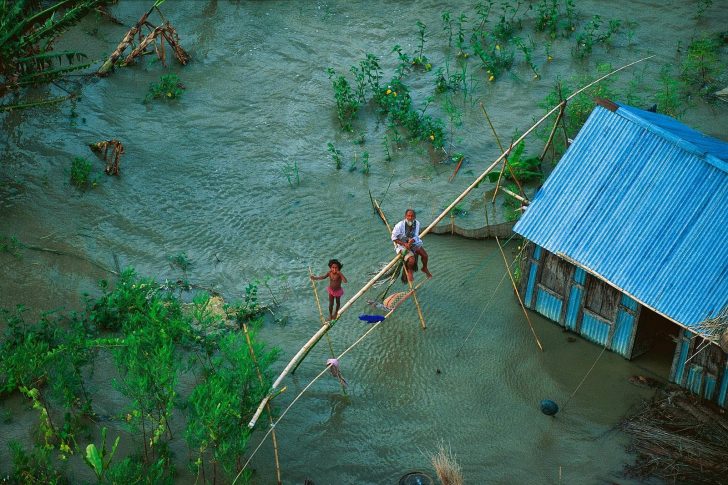
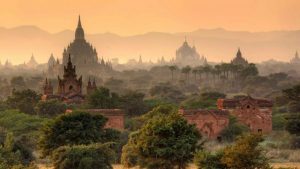
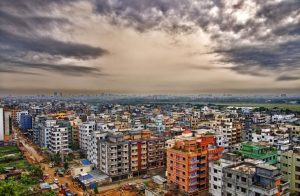
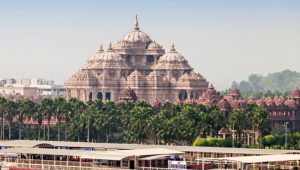
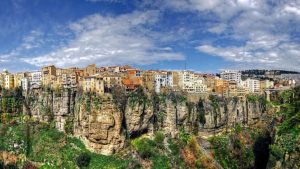
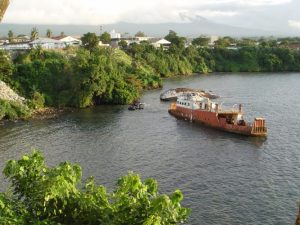
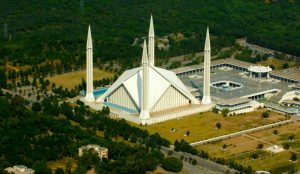





Safer than the US
Weird that the website states one of the safest areas of the capital as a place to avoid. The Gulshan/Banani/Baridhara area is the diplomatic zone under 24/7 security and surveillance. Use common sense, stay in populated areas and have a guide if traveling off trail.
What a shithole
Terrible place with the worse slums i’ve ever seen
More safe then US
What an a**hole! These poor slum dwellers in that country and elsewhere are the ones who are forced to work overtime in health hazardous conditions by companies from so called “civilized*, rich” west.
Safest than so called Ultra- modern, racist, Terrorist USA…
Bubbled mind
Have you ever seen a luxury 5 star slum anywhere on the planet?
Come out of your bubble world and have some empathy who struggle to feed their family a healthy diet.
I agree mate went here and was traumotised from the experiience ive had it doesnt even comppare to my house in Yemen, would not return i wud raher be in a gulf war
Safer than US and UK
Those who wrote the article have 0 ideas. Gulshan and Banani is a diplomatic zone and the safest area in Bangladesh with 24/7 armed security.
Yes, there is theft, snatching and scam possibility like other countries but it’s safe than many countries in the world.
Go tell the relatives of the bakery shooting and pf the italian jogger in Gulshan! Take a walk around in darker areas of Banani and Gulshan themselves (let alone suburban areas or Chittagong!)…then come back and let us know if it’s safer than UK or US’s Gulshan correspondent areas (diplomatic rich western like downtown)
Overall risk: Nil
This rating is totally shit. They exaggerated some small issues. Terrorists attacks also happening in Europe. Some small crime like theft and robbery happens but that are now rare and they never target foreigners because law enforcers are much more serious about foreigners than local. I never heard of armed robbery in my last 10 years.
Bangladesh is poor and densely populated. People are helpful and extremely curious about foreigners, because they don’t see foreigners everyday life (maybe in whole life)
Safer than european countries
The local law enforcement personnel’s are much active and people are also very much friendly. No petty crime detected in my watch.
Bangladesh is absolutely a naturally beautiful country
There are many historical & famous places in this country. It’s one of the most densely populated countries in the world 🌍.
But It is a great Muslim-oriented county. All the people follow the peace rules of religion. But poverty, indiscipline, corruption is a bitter side of this country. But most of the citizens of this country are absolutely friendly, helpful, well behaved, civilized, gentle, polite & humane.
Basically, they simply sacrifice their own life for sake of others. Especially they are very hostile. Hostility is one of the traditions of this country. People are curious about foreigners. As western so-called ultra boost countries.
Muslim people always believe in society and family rules of religion.
Nicest People
Been there many times. What makes Bangladesh so unique is not the country but its the people. Warm welcome and such hospitality. Always!
Always felt safe and welcome
Incredibly country, extremely safe. I travelled there solo for 3 weeks, the people could not have been nicer or more helpful – couldn’t recommend more!
You have no idea on what you are talking about. Gulshan, Banani & Baridhara are one of the most secured and safest areas in the city even for the local people, let alone foreigners. There has been only one single isolated incident in history in that zone when a group of young gun men took over a cafe. And because of that incident the security of already a secured area has been tightened.
Foreigners has seldom been a victim of mugging or any other crime not just in that area but in the whole country as a general.
The only disadvantages for a new foreigners would be their bargaining skills at local markets (usually for local people) and annoyance of getting too much attention (like a celebrity)
Watch YouTube travel vlogs on Bangladesh and you will see that how wrong is the article.
Bad side about this country is that there is lots of crimes here. But people are very friendly and welcoming.
sorry your information wrong, so safe from another south Asian country, there people so kindly and friendly